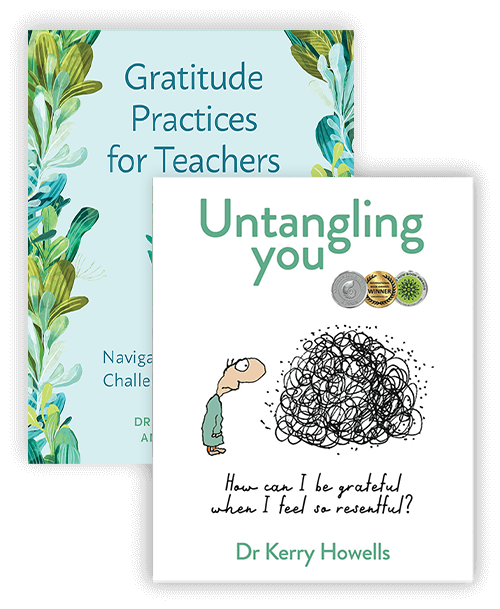Millie, one of my ex-students, contacted me recently pleading for a blog on how to respond to the outcome of the US election with gratitude. She was finding it hard to find her gratitude in the midst of being paralysed by comments on Facebook slamming the leftist elite for not being inclusive enough. As Millie is a committed activist for the environment and the betterment of society, she felt she was being labelled as part of the left who were now being accused of “getting it all wrong”, and representing elitist middle-class views. Millie felt judged for being a bad and inadequate person just for trying to make the world a better place. She also said that she “felt terrified about a whole raft of things”.
For those who are trying to find a place for gratitude in the midst of this, the following questions from Millie may well resonate: Instead of yelling abuse back at those whom we feel wronged by and writing them off as not being part of our future utopia, do we have to practise gratitude? So how do we do that? What would that look like? And how do we do this without condoning their actions? How do we at once fight with all we have for a better world, whilst extending gratitude to those who judge us for that?
Millie’s questions also raise another important one in the midst of the current climate: How can gratitude help other marginalised people who might receive a violent backlash for speaking out about their views – on both sides of the election?
Rather than going straight into the adversity and trying to find gratitude there, I suggest that we always do our very best to create the conditions, and act in ways through which gratitude can flourish, so that everything that is the opposite of gratitude cannot thrive.
This is what I call a ‘politics of gratitude’ because it needs to be an active, conscious and vigilant choice about how we respond to the injustices in our world. There is no place in these politics for resentment.
The philosopher Robert Roberts (2004) has done some brilliant conceptual work on gratitude and shows that where there is resentment we cannot have gratitude and where there is gratitude we cannot have resentment. As states they cancel each other out. This does not mean that we are either grateful or resentful people. Rather, before we can express genuine gratitude to another we first need to address our resentment – if any – towards them.
We can access a grateful response in the aftermath of the US election by viewing the world around us as a mirror for what may be going on inside us. Whatever we are reacting to in a negative way is a call to first look and see if there is a seed of this in our own inner attitude. What some parts of this election campaign have presented us with on the world stage is a mirror for the resentment that resides in each of us, and the most powerful way to respond is to dig deep and address this in whatever way we can.
As I outline in the chapter entitled ‘In Toxic Waters’ in my book, Gratitude in Education: A Radical View, resentment robs us of our gratitude, and in doing so it robs us of our resilience and sense of empowerment. However, it is dangerous to replace resentment with gratitude. This is like putting a positive veneer over a negative situation that is crying out for attention. Rather, we need to take proactive steps out of resentment and each of these steps is a gratitude practice. Each time we step away from resentment, even by identifying it in ourselves, we step towards gratitude.
Gratitude has no place if we try to address the resentment in others. We will have greater power if we work on our own turf, on our own hearts. Each time we take the brave move to speak our truth directly to a person who has harmed us, rather than backbiting, bitching or blaming them behind their back, we are winning the fight against the politics of resentment. It takes courage, vigilance and commitment to do this, but through it we are “fighting with all we have for a better world”.
How would this look in practice? In Millie’s case the tendency might be to lash out at those who have shocked her by complaining to other like-minded people and replying with recriminating posts on Facebook. If adopting the politics of gratitude, she might instead attempt to look at the critiques and take something from them that could help her to gain insights into their thinking and thereby advance her own. She could approach some of these people who oppose her views and find ways of communicating how their comments made her feel, while consciously inviting dialogue through listening attentively to their replies.
Most of us find it difficult to speak our truth directly and honestly to a person who has hurt or offended us. This is why we need to work collectively and connectedly to support each other in making these more conscious and brave choices.
To take a stance of gratitude does not mean that we can’t be firm and clear in our opinions. It means that before we respond angrily we draw breath and recognise that we have a choice to respond from a place of grace rather than from fear and visceral anger.
Gratitude can empower us to further resist the white noise of fear and hatred that is threatening to overwhelm so many of us.
Now more than ever there is an urgent need for the politics of gratitude to take centre stage,
Kerry
Reference:
Roberts, R. (2004). The blessings of gratitude: A conceptual analysis, In R. Emmons & M. McCullough (eds) The psychology of gratitude (pp. 58-78). Oxford: Oxford University Press






